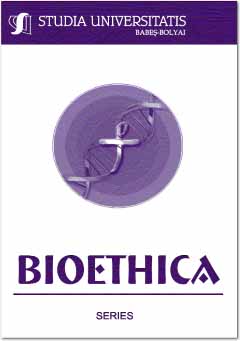BIOPOLITICA ŞI PERSOANA
BIO AND PERSON
Author(s): Adriano PessinaSubject(s): Anthropology
Published by: Studia Universitatis Babes-Bolyai
Keywords: biopolitics; human person; ethics.
Summary/Abstract: The United Nations Universal declaration of human rights (1984) has centered the assertion of human dignity and freedom as innate (not acquired) qualities in the logic of citizenship itself; this claim has been made not only in philosophical and religious terms, but also in political terms. Affirming that all men born free and equal for what concerns their dignity means to affirm actually that dignity is an ontological attribute, an intrinsic quality (and therefore inalienable) of the human being, beyond sex, health and social standing differences. The use of the notion of person as synonym of the qualities of adult risks to crush this gain of politics. The liberal biopolitics risks to be a source of discriminations among men when it adopts a concept of person different from that of human being. According to this view, the anthropological dualism peculiar to the Platonism lives again. Hannah Arendt, Evas Kittay and Martha Nussabaum’s thesis allow us to underline the human person characteristics as both subject and bodily being, according to the Thomas Aquinas’s intuition. If we think again human person as human being, it is possible to safeguard the everybody rights and particularly to defend those phases of human life in which human person is exposed, for the phases of the development or for the illness, to the dependence. Only in this way justice could be thought including all the phases of the existence, also those marked by disability.
Journal: Studia Universitatis Babes-Bolyai - Bioethica
- Issue Year: 55/2010
- Issue No: 1
- Page Range: 29-38
- Page Count: 10
- Language: Romanian

